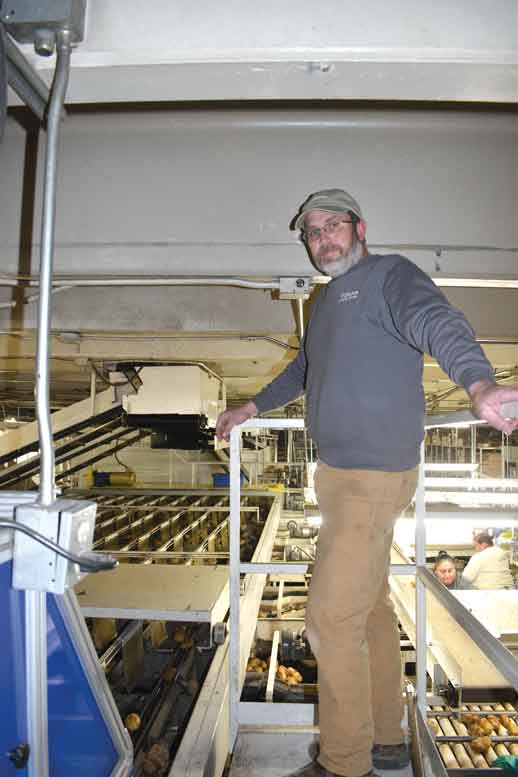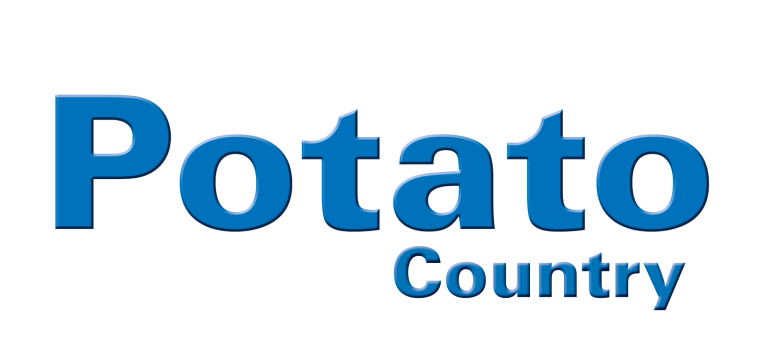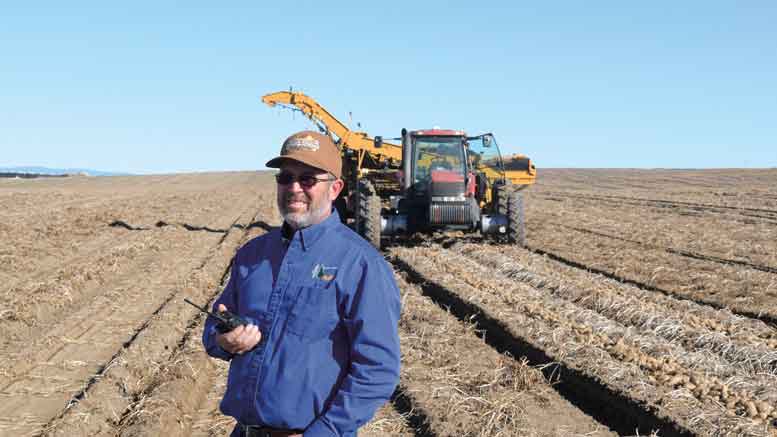|
Click to listen to this article
|
Story and photos by Dave Alexander, Publisher
Trever Belnap will be the first to tell you that hard work does, indeed, pay off. As the production manager for Hamer Farms in Hamer, Idaho, and the general manager of Ball Brothers Produce in Lewisville, Idaho, Belnap puts in a full day. And he recently added yet another job: co-chair of the Potatoes USA Research Committee.
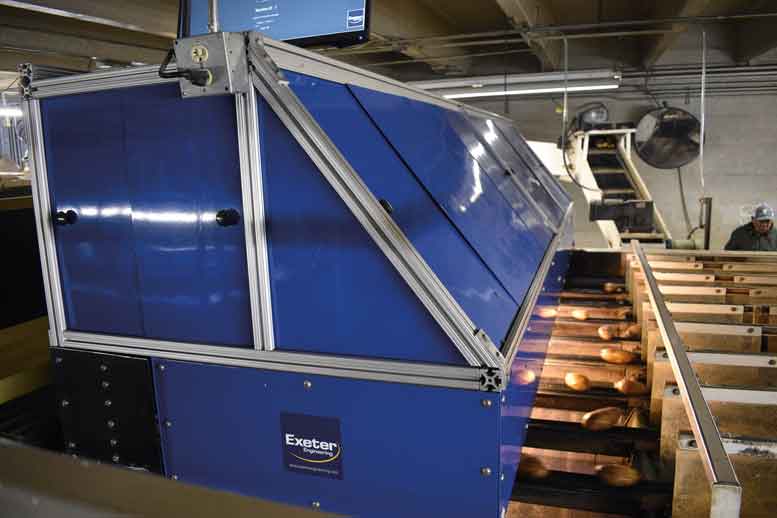
The Man and the Committee
Trever Belnap grew up working for both paternal and maternal grandparents on their farms. Always a tireless worker, he found himself working on one local farm or another on days off and during vacation time from high school and college. He often worked two jobs, days on one farm and nights planting spuds on another. Belnap worked for his father-in-law for over 20 years at Hamer Farms before stepping into his current role, now a partner on the farm and at the shed, both entities commonly owned by the partners.
Potatoes USA appointed Belnap as co-chair of the research committee in 2023. He considers this particular committee a good fit for himself because his educational background is in science.
This committee doesn’t conduct research, but acts as a stakeholder that helps steer funding for studies. Studies include searching for new potato varieties that can be adapted for different conditions such as drought and for more disease resistance.
“As time marches on, you have to be constantly researching and looking for what’s the next treatment that’s going to manage disease X. You have to be forward-looking because what’s going to happen when we get a disease there is no treatment for? We don’t have a crop,” Belnap says.
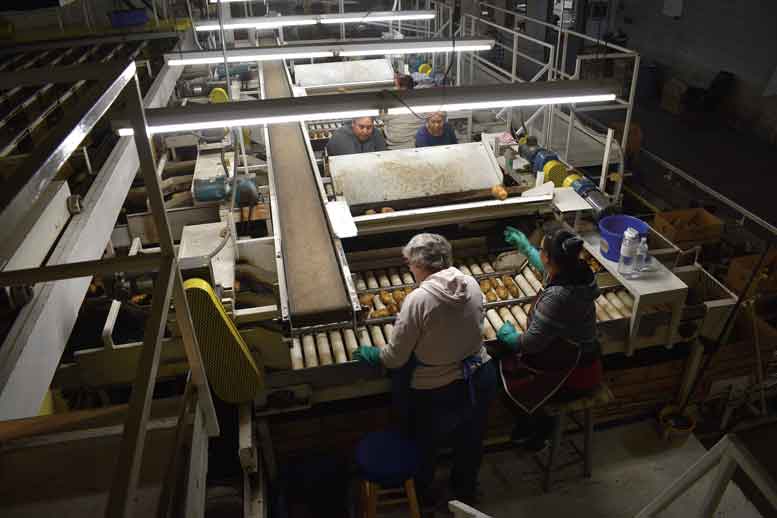
The research committee also helps look for varieties that will produce a better potato chip, are more resistant to bruising, will store better, have better color and will be easier to manage for growers. The committee is made up of growers across the U.S. in order to represent various production regions equitably.
“My concerns in Eastern Idaho may be a little different than my friend’s in Pennsylvania because of growing conditions and the soil and different things,” Belnap says. “But there are always pieces and parts where we as growers in the United States can find common ground, and that’s what we’re looking for.”
Belnap says his group looks to fund projects that will benefit potatoes in the U.S. in general because “the whole point of Potatoes USA is to increase the demand and marketability of U.S. potatoes.”
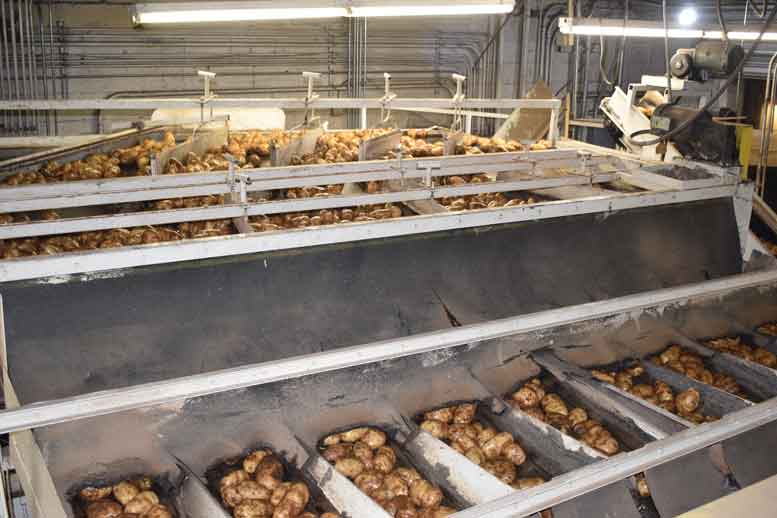
The Farm
Ronald, Leland and Vernon Ball, the original Ball brothers, started raising sheep and growing potatoes in Eastern Idaho in 1942. A packing shed was added, and eventually, the family business was bought out by sons of the brothers. Now the third generation is doing the same, and some of the fourth generation also works at the operation.
Belnap is one of the owners of Hamer Farms, which grows 1,500 acres of spuds, along with alfalfa, mustard, wheat and corn. They also have a sheep and cattle operation, just like the founding brothers did.
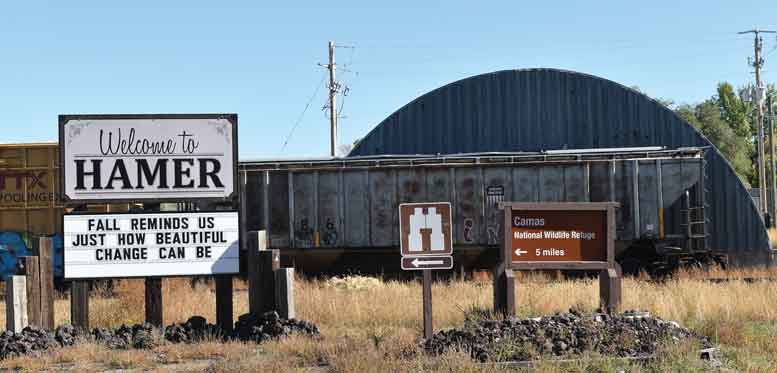
The Shed
Belnap says the Ball Brothers packing plant is small compared to many other operations. But that hasn’t stopped him from employing the latest technology to improve efficiency, including artificial intelligence (AI). Ball uses an AI-enabled Exeter optical sorter on the packing line that sorts by size and quality, kicks out exterior physical defects and finds interior problems like hollow heart, using x-ray.
The Exeter catches only about 50 percent of problem spuds because Belnap is running at high speed. Employees catch the rest of the culls, but it takes less staff than it did before the optical sorter was put online.
Ball Brothers already uses a robotic palletizing arm, but future plans call for a robot with multiple arms that will pluck culls from the line before bagging. These robots are available now, but Belnap thinks this technology is still a year or two away from being truly effective. When he does invest in more AI equipment, even less human intervention will be needed, but Belnap doesn’t think he’ll ever fully give up having people check spuds before final packing. So far, he has found no substitute for the human eye.
Belnap is quick to acknowledge the contributions and hard work of Ball Brothers employees and thereby, the packer’s success. At least half of the crew has worked for Ball Brothers for more than five years.
A combination of automation and smart management has made and kept Ball Brothers profitable.
By keeping expenses low and running at peak efficiency, the company’s overhead stays very low, according to Belnap.
“We can fully utilize everything and don’t have wasted equipment or people. Our cost per hundredweight is lower,” he says.
Though Belnap has never been afraid of hard work to get things done, sometimes even more work is accomplished by working smarter.
